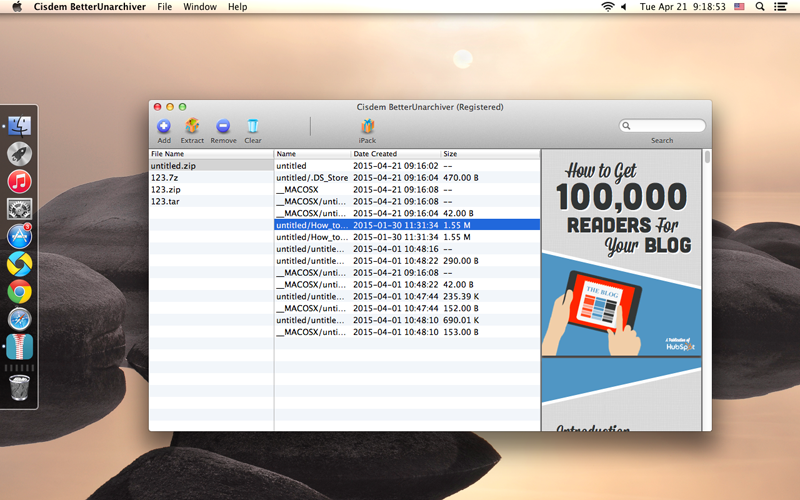
- The unarchiver trust upgrade#
- The unarchiver trust code#
- The unarchiver trust trial#
- The unarchiver trust download#
There is a Linux version available if users want one. It works on a variety of devices, although it does not work for Mac. Like many of the other options on this list, PeaZip is an open-source program supported by volunteer efforts. PeaZip provides strong encryption options, two-factor authentication, and more. The first is the number of privacy options available. PeaZip includes all the basic functionality users expect from a file extractor, but it includes several features that set it apart.
The unarchiver trust download#
You can download WinRAR directly from the company’s website here. There is no Mac version of WinRAR, although there are Mac-focused options.
The unarchiver trust upgrade#
It just aggressively prompts you to upgrade the paid version upon startup.
The unarchiver trust trial#
WinRAR is technically a paid program, but its free trial doesn’t restrict you from using it once it runs out. Version History v1.One particularly useful feature is the Wizard function, which is a guide for new users to walk them through the process of extracting files from a zipped folder, as well as using other tools. NSKeyedArchiver+butWithNSError catches exceptions, unravels them and transmogrifies them into NSErrors for you so you can handle them normally (I'm biased, but I recommend JRErr). Here is a class responsible for decoding potentially hostile data and it blows up your entire process if things aren't exactly to its liking?! That's just nuts.

But it seems wrong that NSKeyedUnarchiver throws exceptions. I could make a case for NSKeyedArchiver throwing exceptions since as the programmer you can know what you're passing it. Which is what NSKeyedArchiver+butWithNSError uses. Since + and + don't give you an opportunity to call -setRequiresSecureCoding:YES, they're out of the party as well.
The unarchiver trust code#
Tl dr: don't use - or - in new code unless you need compatibility with Format 1 archives. The Bad News is that you must use - to decode what - is cooking, and -decodeObject isn't compatible with NSSecureCoding (you need to use -decodeObjectOfClasses:forKey:). Here's a table of which methods play with which format. Unfortunately it turns out generates a binary plist in a format (I call this "Format 1") that's incompatible with + (which requires what I call "Format 2"). Having to reimplement +archivedDataWithRootObject:, you'd be forgiven thinking that you should utilize. And it turns out there's a trap for the unwary. Not only are you now in the creation and configuration business, you need to use it correctly. Now you need to manually create your archivers and unarchivers just so you can call their concealed -setRequiresSecureCoding: methods. I hope the Smoking Man's in this one.īut then NSSecureCoding burst onto the scene. +Īnd would be done for the day and catch an X-Files rerun. The Plist-standard are automatically whitelisted for you: NSArray, NSDictionary, NSString, NSNumber, NSDate, NSData. Naturally these classes must support NSSecureCoding otherwise you'll get a runtime error.

Whitelist can be nil or empty, but if supplied will be added to the list of trusted classes allowed to be deserialized. requiresSecureCoding works the same way as above. Set requiresSecureCoding to YES if you want an error returned if any object doesn't support NSSecureCoding.Ĭall + to deserialize the data back into objects.

UseĬall + to serialize rootObject's object graph into an NSData. These should be compatible with both ARC and MRC. + categories make it easier to use NSKeyedArchiver and NSKeyedUnarchiver correctly, securely and cope with the fact NSKeyedUnarchiver throws exceptions.


 0 kommentar(er)
0 kommentar(er)
